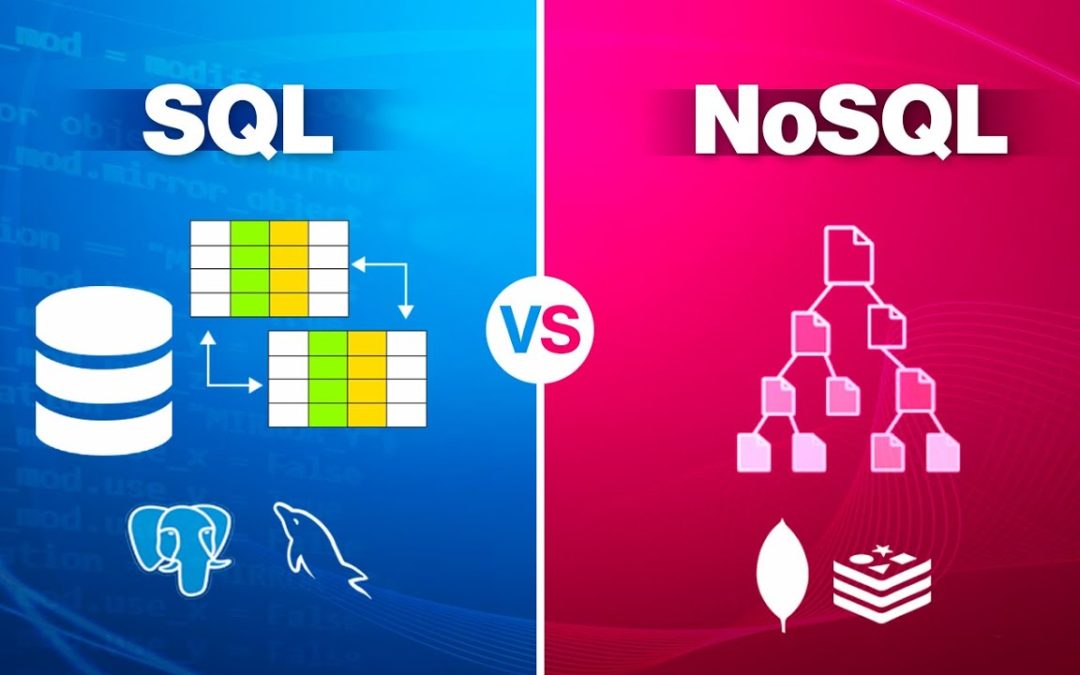In cutting-edge day information-driven global, deciding on the proper database technology is essential for the achievement of any software program software application or organization. The desire frequently boils right right proper proper all the way down to SQL (Structured Query Language) and NoSQL (Not Only SQL) databases. Both have awesome tendencies, blessings, and use times. This article delves into the versions among SQL and NoSQL databases, exploring their capabilities, advantages, and ideal situations to help you decide it in reality is proper in your desires.
Understanding SQL Databases
SQL databases, furthermore referred to as relational databases, were the cornerstone of facts control for many years. They use a based totally schema to outline tables, rows, and columns, ensuring statistics integrity and consistency via ACID (Atomicity, Consistency, Isolation, and Durability) homes. Popular SQL databases embody MySQL, PostgreSQL, Microsoft SQL Server, and Oracle Database.
Key Features of SQL Databases:
- Structured Schema: SQL databases require a predefined schema, which enforces information consistency and integrity.
- ACID Compliance: Ensures dependable transactions, making SQL databases incredible for programs in which records accuracy and integrity are critical.
- Powerful Query Language: SQL offers robust querying abilties, permitting complicated queries and information manipulations.
- Data Relationships: SQL databases correctly address complex relationships amongst statistics entities through distant places keys and joins.
Benefits of SQL Databases:
- Consistency and Integrity: Ideal for applications requiring strict data accuracy, which incorporates economic structures, e-trade systems, and corporation beneficial resource making plans (ERP) structures.
- Complex Queries: Suitable for packages wanting complicated querying and reporting competencies, which encompass business enterprise intelligence and analytics equipment.
- Mature Ecosystem: A properly-hooked up technology with full-size documentation, network help, and a big kind of tool and frameworks.
Understanding NoSQL Databases
NoSQL databases emerged in reaction to the regulations of relational databases, mainly in handling huge volumes of unstructured and semi-installed information. NoSQL databases are designed for scalability, flexibility, and immoderate performance. They are to be had in numerous types, which incorporates document shops (e.G., MongoDB), key-price stores (e.G., Redis), column-circle of relatives stores (e.G., Cassandra), and graph databases (e.G., Neo4j).
Key Features of NoSQL Databases:
- Flexible Schema: NoSQL databases do now not require a predefined schema, deliberating dynamic and flexible data models.
- Scalability: Designed for horizontal scalability, permitting seamless growth with the aid of which encompass greater servers to deal with expanded load.
- High Performance: Optimized for check and write operations, making them appropriate for excessive-tempo information environments.
- Diverse Data Models: Supports numerous facts models (file, key-rate, column-family, graph), catering to incredible software program software software dreams.
Benefits of NoSQL Databases:
- Flexibility: Ideal for applications with evolving records necessities or in which the schema isn’t always properly-described, which incorporates content material cloth fabric fabric manipulate structures, social networks, and IoT programs.
- Scalability: Suitable for packages with massive information boom and the want for immoderate availability, which includes big facts analytics, actual-time analytics, and on-line gaming.
- Performance: Optimized for programs requiring fast examine and write operations, which incorporates caching layers, session stores, and real-time bidding systems.
Comparing SQL and NoSQL: Key Considerations
When identifying between SQL and NoSQL databases, undergo in thoughts the following elements:
- Data Structure: If your statistics is highly primarily based and relationships are crucial, an SQL database is probable the higher choice. For unstructured or semi-installed records, NoSQL databases provide extra flexibility.
- Scalability Needs: If your software wishes horizontal scalability and immoderate availability, NoSQL databases are designed to satisfy those needs more efficaciously than traditional SQL databases.
- Transaction Requirements: For applications requiring strict transactional integrity and ACID compliance, SQL databases provide the important ensures. NoSQL databases can provide eventual consistency, which may be sufficient for high-quality use instances.
- Query Complexity: If your software program consists of complicated querying and reporting, SQL’s powerful question language is immoderate extraordinary. NoSQL databases excel in less complex, key-based totally totally completely definitely truly lookups.
- Development Speed: NoSQL databases frequently permit for faster improvement cycles due to their bendy schema, which may be beneficial for agile improvement environments.
Conclusion: Which Is Right for You?
The choice amongst SQL and NoSQL databases is predicated upon to your specific software application necessities and use instances. SQL databases are nicely-appropriate for applications desiring primarily based absolutely surely records, complex queries, and transactional integrity. They provide a mature and robust surroundings with robust querying abilties. On the opportunity hand, NoSQL databases are perfect for packages requiring flexibility, scalability, and excessive commonplace popular common universal performance with unstructured facts.
Ultimately, many companies discover that a hybrid method, leveraging both SQL and NoSQL databases, gives the excellent of each worlds. By carefully assessing your records dreams, scalability necessities, and development priorities, you can pick out the database generation that aligns alongside facet your goals and ensures the achievement of your software program program.



